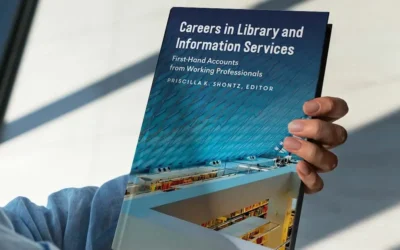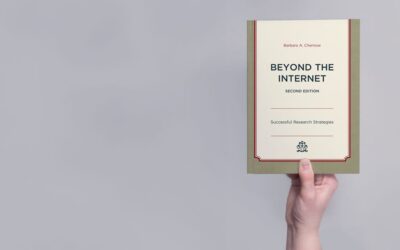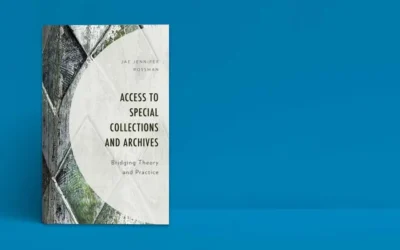Sticky Marketing: What’s Your Problem?
Sarah Nichols
Ye Olde Reference Interview. It offers an excellent opportunity to practice “Sticky Marketing,” allowing you to meet your users where they are (in this case, in the context of a research project) and to make a personal connection that results in the library being more integrated with employees’ daily workflow.
Marketing of library products and services is done both formally and informally – the opportunities to impress your users simply by doing your job well and going the extra mile are myriad. The reference interview offers the perfect chance to build awareness of the library’s value and helps build personal relationships that ensure library staff are always thought of as integral to employee efficiency and success. It’s well known that people often ask “the wrong question” – yes, there is such a thing – when they approach a librarian for help. They usually ask for data. It’s your job to expand or even narrow the scope of their request so that you can deliver the information and knowledge they really need.
In my years as a researcher at McKinsey and Company, and then as a research manager brainstorming with librarians and information specialists as they worked on projects, I learned that the best question for a librarian to ask, first and foremost, is: what problem are you trying to solve? Context is everything.
Once the requester describes the context for their request – the background, the reason for the specific initial question, the desired end result, and the deliverable that they have to produce, you will be best able to help them – beyond (or even instead of) answering the original data request. *If they resist engaging with you for a dialogue rather than the transaction they envisioned, quickly explain the above …and then if they still want a transaction, you can deliver the exact data they requested and say you are available for follow up. That in itself is great customer service and is also good marketing for the department – even though you know you could add much more value with higher engagement.
A second question helped us hone in on the level of research required, or at least the type of deliverable needed. We would say: “Do you want to be…
- Cocktail party smart,
- Go to lunch smart, or
- Boil the ocean smart?”
I got a kick out of it when one day I was walking along the hall and heard someone instruct his business analyst to go to R&I (the Research and Information Services Department) and “have them make you cocktail party smart on this before we meet with the client.” Understand the information need, deliver more than simply data, and empower your users at the appropriate level for the context – and you will embed the library as a valued player in the daily workflow.
Sarah Nichols
Stan writes regularly for Lucidea’s Think Clearly blog. Subscribe to ensure you never miss a post with engaging information for KM practitioners and special librarians! Learn about Lucidea’s Presto, SydneyDigital, and GeniePlus software with unrivaled KM capabilities that enable successful knowledge curation and sharing.
Similar Posts
AI and the Transformation of Information Literacy
Due to the rise of artificial intelligence (AI), information professionals must evolve their teaching and training approaches as technology reshapes the information landscape, because AI has transformed what it means to be information literate.
Interview with Technical Services Librarian Becky Givens
Becky Givens is a Technical Services Librarian featured in the book Careers in Library and Information Services, which includes a section on careers in special libraries where librarians describe the work they do in various settings. My interview with Becky is below.
Interview with the Author: Dr. B. Chernow on Going Beyond the Internet
Special librarians know searching the Internet answers specific questions, but you miss or misinterpret information if you only consult the Internet.
Interview with Author and Librarian Dr. Jae Rossman on Special Collections and Archives
Dr. Jae Rossman wrote Access to Special Collections and Archives, available now from Rowman and Littlefield. The book is an excellent resource for special librarians who work with special collections and archival materials.



